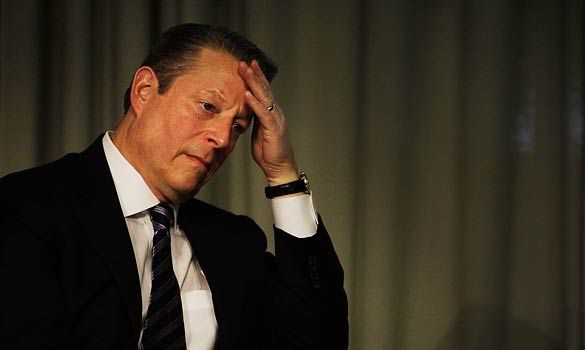Scientists Finally Admit That Al Gore Climate Models Are Failing To Predict Global Warming

A group of scientists recently put out a new study confirming the 15-year “hiatus” in global warming. That study made headlines, but what went largely unnoticed was a major admission made by the paper’s authors: the climate models were wrong.
“There is this mismatch between what the climate models are producing and what the observations are showing,” John Fyfe, Canadian climate modeler and lead author of the new paper, told Nature. “We can’t ignore it.”
“Reality has deviated from our expectations – it is perfectly normal to try and understand this difference,” Ed Hawkins, co-author of the study and United Kingdom climate scientist, echoed in a blog post.
This is a huge admission by climate scientists and a big victory for skeptics of man-made global warming who have for years been pointing to a mismatch between climate model predictions and actual temperature observations.
Comments
Post a Comment